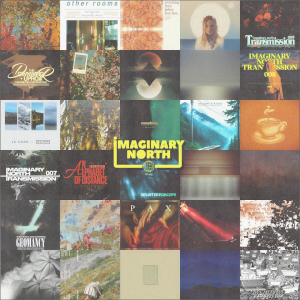“So Flesh is really about the joy of creation. But similarly, basics outside realities always offer inspiration; the cycles of nature, the cosmos, natural structures, man-made structures, destruction and construction, death and birth. The fleshy, spore-bearing fruiting body of the fungus; animal, plant and insect flesh—the growth and decomposition of flesh.” (Robert Logan)
“Recently I was visiting relatives in Hungary,” says musician Robert Logan. “During a walk we came across an old Soviet era bunker and managed to get inside. It was mostly intact though in places it was falling apart and just beautifully decaying.”
Beautifully decaying are two words that perfectly describe the music of Robert Logan, especially on his new album Flesh (out on Slowfoot next month) where Logan takes his love of classical, ambient and electronic music, bringing them together in a wild mix. Sometimes it is chaotic and sprawling, other times it is tight and precise but it is always meticulously produced, methodical and brilliant.
Logan grew up in a musical household with a father who played classical piano. Young Logan wanted to emulate that and began playing at age six. “I heard Holszt’s Planets at a young age and one of the movements—sadly I can’t remember which—struck me like lightning. After hearing that I decided that’s what I wanted to do: make music and reproduce that feeling in me for others.”
He discovered the music of Orbital, The Orb and other IDM classics in his early teens and began to experiment with simple MIDI gear and a computer at home. “But then things changes when I heard Go Plastic by Squarepusher, Magnificent Void by Steve Roach and Aphex Twin’s Drukqs. These albums gave me permission to explore simply by existing.”
After hearing those, Logan began to delve deeper into composition, keen on exploring the experimental while keeping only a select set of rules and strictures from his classical upbringing. “While I respect classical music—especially the more modern composers—I find classical musicians can often be the most rigid in their ideas despite being so well trained,” he says. When it’s proposed to him that training in music that is centuries old and rigidly structured narrows some minds, he agrees. “Yes, I think that’s probably it. There’s no excuse for loving sounds. And there’s endless music all around you.”
Logan’s enthusiastic about recording everything around him, often bringing a field recorder on excursions to the countryside, abroad or even close to home, sampling kitchen items or car doors. That includes his new album Flesh. Robert was very open to discussing aspects of the new album with Igloo from his studio in London.
 What was the new album Flesh’s inspiration?
What was the new album Flesh’s inspiration?
Logan :: The music-making process itself is a primary source of inspiration. When I forget myself and am simply wholly present with the task at at hand, tracks seem to form out of a vast downpour of ideas and surprises. It seems like there is an infinite expanse of musical possibilities to discover, and current technology only affords a deeper level of exploration than ever into the sonics and construction of music. It is hard for me to articulate in words, but when a track begins giving me a strong feeling of ‘otherness’, of being displaced from where I currently am, I get excited. I am not saying I am always successful in kindling such ecstatic music – but the possibility of it freaking me out to that degree is always an inspiration.
It is incredible to me how certain combinations of sound can shift one’s mindspace and how the interactions between various frequencies can smolder with such a heavy sense of atmosphere. The studio and all its potential—even the way gear smells—is a most amazing stimulus. So Flesh is really about the joy of creation. But similarly, basics outside realities always offer inspiration; the cycles of nature, the cosmos, natural structures, man-made structures, destruction and construction, death and birth. The fleshy, spore-bearing fruiting body of the fungus; animal, plant and insect flesh—the growth and decomposition of flesh…there are so many phenomena and there is so much relentless activity in the natural world to draw inspiration from. Nothing matches the poly-rhythms of certain frogs, for instance.
It is also fascinating to see how man-made structures sit in nature, both in terms of beautifully decaying industrial structures that are being taken over by nature, and conversely newer structures and sources of renewable energy, like wind turbines. It might sound strange, but I get the most intense, unusual emotions from just staring at electric pylons. Not just electric pylons, but also certain types of bridge, cranes and wind turbines. In certain lighting conditions these structures are such a potent and inspiring presence, and they do trigger musical ideas. I am basically in awe of all that is around me.
 When did you start working on Flesh?
When did you start working on Flesh?
Logan :: I have demo CDs with Flesh written on them and many tracks that survived to the pressing of the album from 2010. So I suppose I began work proper on it in 2010. I think I demand more from my music and listen with greater detail now, so most of the tracks on this album took quite a while to complete in comparison to past releases, though some of those older ones took a while to cook, too! Maybe this is just my experience, but it seems to me many people don’t understand quite how much work goes into this kind of music. I understand that impression, as there are so many paths to creating a ‘finished’ piece of electronic music and many available shortcuts and presets. That is fine. I don’t judge others if they want to use preset sounds or loops or effects or if they want to mainly sample other people’s music, but I can’t really work that way. I sampled some folk music one time and did release that piece, but have never done it before or since as far as I can remember. Most aspects of this music are constructed from the ground up, and I often work in strange, long-winded ways to get certain results and don’t make things easy for myself. That seems to be the way to keep music making interesting sometimes. Its all frequencies. There is no separation between sound-making and composition for me; harmony, melody, texture, rhythm, sound-design, production… I don’t divorce these things. They are now all just music, and to take control of such music can take a long time. Going back to commercial projects or scores and such is interesting for me, because suddenly we’re talking about separate stems and effects sends and whatnot again, but I don’t really think or work in those terms. All the elements are constantly talking to each other and so melt into a whole. The way a Reaktor reverb you’ve made shifts and changes throughout a track or the specific characteristics of a cheap hardware delay you’ve chosen to use is as much music as the notes you’ve picked, and everything happens for a reason and responds to some other element of the track. I really love good drone and ambient music because its drama and life comes from these subtleties, but I have friends who perhaps hear music more traditionally, or acousmatically, as tones, and to them such music is a whole lot of nothing.
 Was there anything particular you wanted to achieve with Flesh?
Was there anything particular you wanted to achieve with Flesh?
Logan :: Certain triggers can make you want to achieve something specific with your music, like having a certain revelation, or exploring an abandoned building or watching Stalker or Ghost in the Shell: Innocence, or whatever else. You just want to bottle that atmosphere and let it loose through the studio—although it rarely works out that way. Most of all I simply wanted to enjoy making the music as much as possible in creating Flesh. There is a sound, a certain glow or fierce aura in the music I tend to aim for, and I did have certain goals I wanted to pursue from the outset, like writing in quarter tones and writing with specific live musicians in mind for some tracks, but on the whole I create for the sake of creating and don’t think so much about what I want to achieve. In doing this some new tangents came about—for example, a lot of the album ended up being a kind of dance music. It became body music, tribal music for raves as well as head music. For a long period I stopped showing any new pieces to anyone and just got in with creating it, and I think that doing that has some benefits. But I’m pretty brutal with the music and spend quite a while testing it on lots of different audio systems with a view to making it sound better, so aspects of the process are quite outward looking. I do want the end result to be great listening and it would be good if the music melted people’s brains. However, its the basics that always get me: modeling sounds, positioning layers of musical events to the nth degree, exploring harmonies and frequency combinations, programming patches, exploiting accidents, sonic interferences and gear malfunctions, improvising with acoustic, machinic and human partners, finding new sounds to record and new ways to record them in the environment, pushing for new ways to structure tracks and keep them musically surprising—all these building blocks endlessly thrill me. It is hard to pinpoint something particular I wanted to achieve with it other than to keep exploring those possibilities. By pursuing those in as honest a way as possible and working hard to draw all tangents together, I think or hope a cohesive narrative forms naturally.
One thing I would like to achieve is to have one of my industry-inspired pieces played in huge, scary power station, on a colossal set of speakers.
 Were any other musicians playing on Flesh or is it all you?
Were any other musicians playing on Flesh or is it all you?
Logan :: There are other musicians on Flesh and they made a big difference to its sound and direction. I’m very thankful to have these other humans on there. I play live with Ben Cowen and Frank Byng on drums, and I wrote the first three tracks specifically with Frank in mind. His parts were recorded at his studio because there is no room in my shed to record drums and he knows how to record acoustic instruments better than me. I still managed to ruin his drums once I got the files back to the shed. My father plays violin on the last track, although my dissections have rendered the violin fairly unrecognizable. Andrea Black offers vocal talents on “Spirit Wars” and “Viker Raver.” She is one of the most creative musicians I know, and both she and my father were also on previous albums. Sarah Sarhandi plays viola in “Spirit Wars.” The part she wrote is exactly the kind of writing I love. It is very beautiful I think.
One of the bigger changes in this album came from working with Andy Knight. He coaxes the most unusual, unconventionally-melodic and wonderful sounds out of the trumpet. His tone can get very vocal-like and abstract and very expressive. A listener might see similarities with Jon Hassell’s approach, but I think Andy has also got a style all of his own going on. We have created lots of music together that didn’t make the album, with him on various wind instruments as well as the trumpet. He is open to all kinds of tonal extremities in music and willing to play on anything. A the moment I am making music that is less produced and far more minimal and raw than the material made it to Flesh. It would be interesting to work with some these musicians in this new drier context.
 Is there any sort of theme to it? Do the songs have a particular meaning or resonance for you?
Is there any sort of theme to it? Do the songs have a particular meaning or resonance for you?
Logan :: The song that resonates most with me at the moment is “Solanoid.” That one took quite a while to construct, but it takes me back to a very special time and aims towards the kind of smoldering, blue-grey-metal, incandescent, mechanical sound zone I like to inhabit.
I don’t know if can articulate a theme so well for the album. As soon as I say one thing about music, I disagree with myself and think the opposite is true. I spend most of the time non-verbally putting it together and rarely talk about the music, although I am happy to do so when the moment arises as it’s nice that anyone would show any interest in it. The themes and feelings in this kind of music are usually hybrid and hard to define, not binary.
I find it hard to verbalize, for example, that cold, metallic, heightened but beautifully grey and neutral feeling you get when you’re driving down the motorway in the dead of night in a flow state, street lights smearing past in the rain. I don’t know if music is always about atmosphere, but I do want Flesh to shift atmospheres.
“I live for moments in a track that punch you in the gut with a surprising shift in sonics, be it on a subtle plane or in a total opening of the space; with the right set up and sonic context, a new texture can sear into a piece and thicken the ecstasy even further, if you like. It’s like different kinds of cloud in the sky; this big, thick cloud can roll into the other layers and totally overwhelm the senses.
There are often themes at war in the album tracks. “Spirit Wars,” for example, has four main musical themes, all fighting for dominance throughout. Perhaps war and the collapse of everything is a feeling that is present in some of the tracks. “Vespine Domain” in particular has a sense of total destruction, of endings, of Armageddon to me. It’s synths sound like wasp swarms, and I know of many a poor bees’ nest ravaged by hornets. In order to maximize the intensity, I like there to be many zones going on at the same time in a piece, sometimes complementing each other, sometimes warring; live and improvisational and then highly edited and thought out and very ‘designed’—or analog jams molted down to sit with very clean, data-driven digital soundscapes.
I like combinations of sound that involve very dry, generated synthesized hits with layers of chopped up field records to accent them. It is good I have often recorded my relatives shouting and trying to sing at “goulash-palinka” (dead pig) parties, because their Hungarian voices are very rich and I can draw a lot of harmonics out of them.
Like I said earlier, the natural world, the mechanical world, the cycles of construction and destruction and death and birth, concrete, urban zones and the animals that survive in them, the sky and its terrifying cloud formations, sources of renewable energy like solar energy, hydro power, tidal power, geothermal energy—these are some things that were exciting me as I made Flesh.
Outside of music, the relationship between flesh and machine becomes much more thorough with bionics—the application of biological systems found in nature to the study and design of engineering systems and technology. Furthermore, ideas of the cyborg, escaping the confines of the flesh via virtual reality or cyberspace—and alternatively experiences of trance, ecstasy, dreaming—things to do with mind and matter, the flesh as sin, transfigured or celestial flesh, mystical experience…
I wouldn’t say the music is ‘about’ these things, because I am not so great at words or the conceptual approach and this is really quite accessible music to me, dance music even, cinematic soundtrack music to trip to in your mind, and there is much humor in there—but I suggest them as means to enjoy the pieces further, for those who imagine in that way. All of these ideas can link I suppose in some way with the fact of manipulating organic, fleshy sounds via digital means to create new soundworlds.
Flesh is out October 7th on Slowfoot.
Audio PlayerSpecial Robert Logan Mix Tracklist ::
Igor Stravinsky :: The Rite of Spring (Excerpt)
Snorkel :: Stop Machine (Robert Logan remix)
Ivor Guest :: Unreleased 1
Grace Jones :: Hell Dub (dubbed via Ivor Guest and Robert Logan, Hurricane Dub)
Red Snapper/Robert Logan :: Accurate Spit Boy [Red Snapper Remix] (Accurate Remix Boy EP)
Robert Logan :: Grinder (Grinder EP)
Robert Logan :: MSIPY (Extasis EP)
Ivor Guest :: Unreleased 2
Crackle :: Heavy Water (from album Heavy Water)
Snorkel :: Lower Slaughter (Glass Darkly)
Steve Roach :: ‘Primal Passage’ (Serpent’s Lair)
Grace Jones :: Corporate Cannibal (Robert Logan remix)
Robert Logan :: Accurate Spit Boy (Inscape)
Robert Logan :: Unreleased 2015
Tangerine Dream :: Birth of Liquid Plejades (Zeit)
Skye Edwards :: ‘Give In’ (In A Low Light)
Robert Logan :: 25479 (Unreleased)
Andy Knight with Robert Logan :: Unreleased






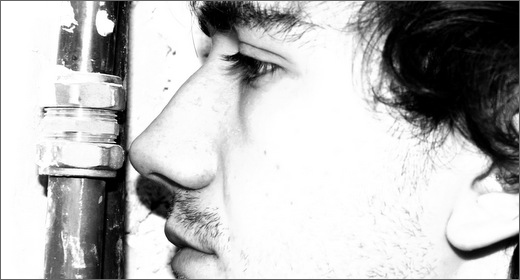




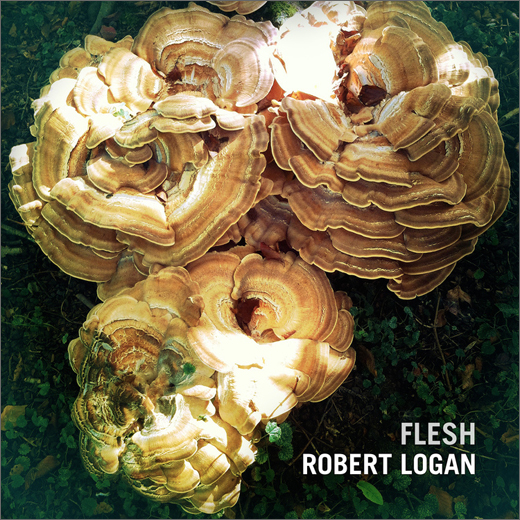

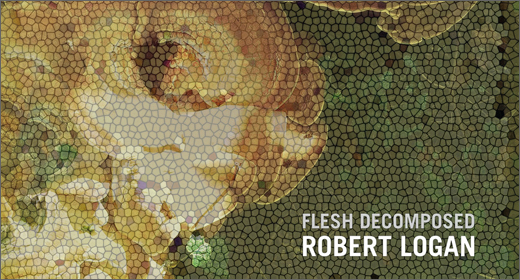
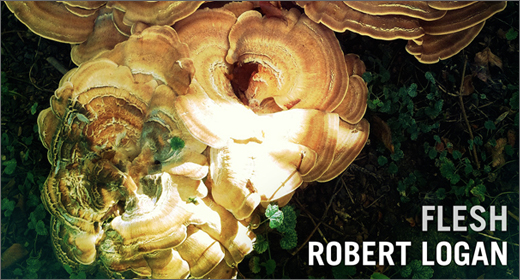
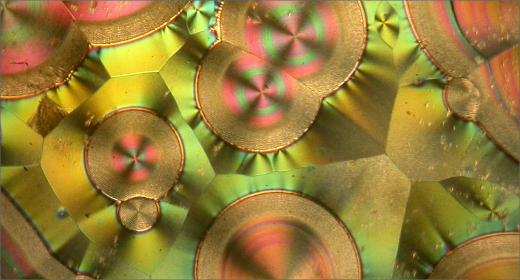
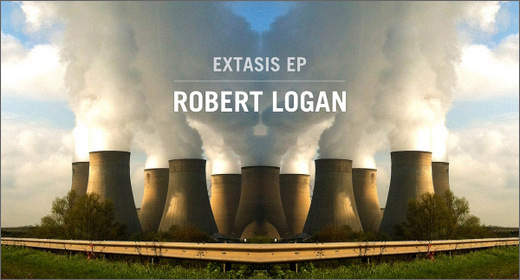

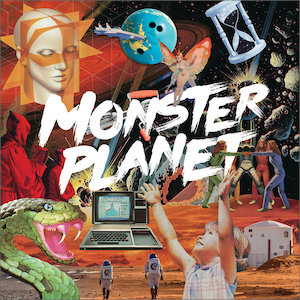






![Romanowitch :: A critical season substitute (glitch.cool) — [concise]](https://igloomag.com/wp/wp-content/uploads/2025/03/romanowitch-a-critical-season-substitute_tape_feat-75x75.jpg)

